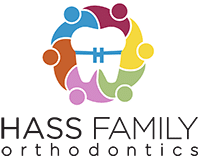Let’s face it—we all love a sweet treat now and then. Whether you’re a kid in school or an adult with a soft spot for chocolate, there’s something comforting and joyful about candy. But if you or your child has braces, indulging that sweet tooth can come with some real risks. At Hass Family Orthodontics, we’re often asked if candy is completely off-limits during orthodontic treatment. Thankfully, the answer is no, but with a few important rules.
Braces are designed to gently and consistently shift teeth into better alignment, but they also create small traps where sticky and hard substances can easily cause damage. That means choosing the right type of candy is essential. In this blog, we’ll walk you through which sweets are safe, which to skip, and why it’s important to be extra mindful of your oral hygiene during treatment.
Braces-Friendly Candy: Sweet Choices That Won’t Harm Your Brackets
Having braces doesn’t mean you have to give up all your favorite candies—just the ones that pose a risk to your wires and brackets. The good news? There are plenty of delicious options that are gentle enough to enjoy without compromising your treatment.
Soft candies and chocolates that melt easily in your mouth are generally safe. These types of sweets are unlikely to stick to your braces or apply excessive pressure that could cause a wire to snap or a bracket to come loose. Some favorites we recommend include:
- Reese’s Peanut Butter Cups – Soft and creamy, these are usually safe in moderation.
- Kit Kats – With their crisp but not overly crunchy texture, they’re a good choice if you bite gently.
- Three Musketeers – Light and fluffy, with no sticky caramel or nuts to worry about.
- Hershey’s Kisses – Classic, smooth chocolate that melts in your mouth.
- York Peppermint Patties – Soft and refreshing with a gentle texture.
- Junior Mints – Another great minty choice that’s soft and braces-safe.
- Sweet Tarts (chewable only if soft) – Let them dissolve in your mouth rather than biting.
- Snow Caps – A small, meltable treat with minimal risk to braces.
The general rule? If the candy melts or is soft enough that you don’t have to bite down hard or chew aggressively, it’s probably safe. But always consume sweets in moderation, and follow up with a good brushing and flossing session.
Candy to Avoid While Wearing Braces
Now for the tough part—what not to eat. Unfortunately, many popular candies can wreak havoc on braces. Anything hard, sticky, chewy, or crunchy should be avoided. These treats can pull off brackets, bend wires, or get stuck in places that are hard to clean, leading to plaque buildup and tooth decay.
Candies that are particularly damaging include:
- Caramels – Sticky and stretchy, these can dislodge brackets and are very difficult to clean off.
- Starbursts and Tootsie Rolls – Both chewy and sticky, a bad combo for braces.
- Laffy Taffy – A major offender that clings to every surface of your mouth and hardware.
- Jolly Ranchers and Hard Candies – Biting into these can crack or pop off brackets in a flash.
- Skittles, Gummy Bears, and Sour Patch Kids – Gummy textures combined with sugar and acids make them a triple threat.
- Twizzlers and Licorice – Tough to chew and easy to get tangled in your braces.
- Nuts or chocolate with nuts – Hard pieces can damage brackets or create uneven pressure on wires.
- Lollipops and Jawbreakers – Too hard and too risky.
We understand that these candies are tempting, especially around holidays and celebrations. But trust us, it’s not worth an emergency orthodontic visit or delaying your treatment progress.
Why Candy Can Cause So Much Damage
Candy isn’t just a problem because it’s sugary—it’s also about how it interacts with your orthodontic hardware. Sticky candies, for example, can latch onto wires and brackets, placing tension that can weaken or break them. Hard candies may seem harmless until you accidentally bite down and knock a bracket loose or cause a wire to snap.
There’s also the issue of sugar buildup. With all the extra nooks and crannies braces create, it becomes harder to clean your teeth thoroughly. Sugar that lingers on and around your braces can lead to cavities, white spot lesions (early signs of enamel decay), and gum inflammation.
When damage occurs, not only can it be uncomfortable, but it can also delay your treatment. A broken bracket or wire often requires an urgent appointment, and your orthodontic plan may need to be adjusted to accommodate the repair.
That’s why it’s so important to know the difference between safe and unsafe sweets—and to practice great oral hygiene no matter what.
Tips for Satisfying Your Sweet Tooth the Safe Way
We want you to enjoy life with braces—including the occasional treat! Here are a few tips to help you enjoy candy without sacrificing your smile:
- Choose softer, meltable candies as your go-to. Enjoy them slowly and let them dissolve instead of biting.
- Avoid chewing candy with your front teeth. Instead, use your molars and chew gently when necessary.
- Rinse your mouth with water after eating candy if you’re not able to brush right away.
- Brush and floss thoroughly after any sweet indulgence to remove lingering sugar and debris.
- Limit candy to special occasions rather than making it a daily habit.
Also, be aware of staining foods and drinks, especially if you're considering teeth whitening once your braces come off. Minimizing dark or sugary foods now can help keep your enamel in better condition for a brighter smile down the road.
Frequently Asked Questions About Braces
Can I eat chocolate with braces?
Yes, chocolate is one of the safer sweets for people with braces, especially if it’s plain and without nuts or caramel. Choose soft chocolates that melt easily in your mouth, and always brush afterward to protect your teeth from sugar buildup.
What happens if I accidentally eat the wrong kind of candy?
If you’ve eaten a hard or sticky candy and didn’t experience immediate damage, you’re probably okay—but check your braces to be sure nothing feels loose or bent. If you notice a broken wire or bracket, call us right away. Continuing with damaged braces can delay your treatment or cause discomfort.
At Hass Family Orthodontics, we help patients of all ages navigate life with braces, without sacrificing the fun. We offer compassionate, personalized orthodontic care and guidance to help you get the results you want safely and efficiently. Contact us to schedule an appointment or learn more about how to protect your smile during treatment.

